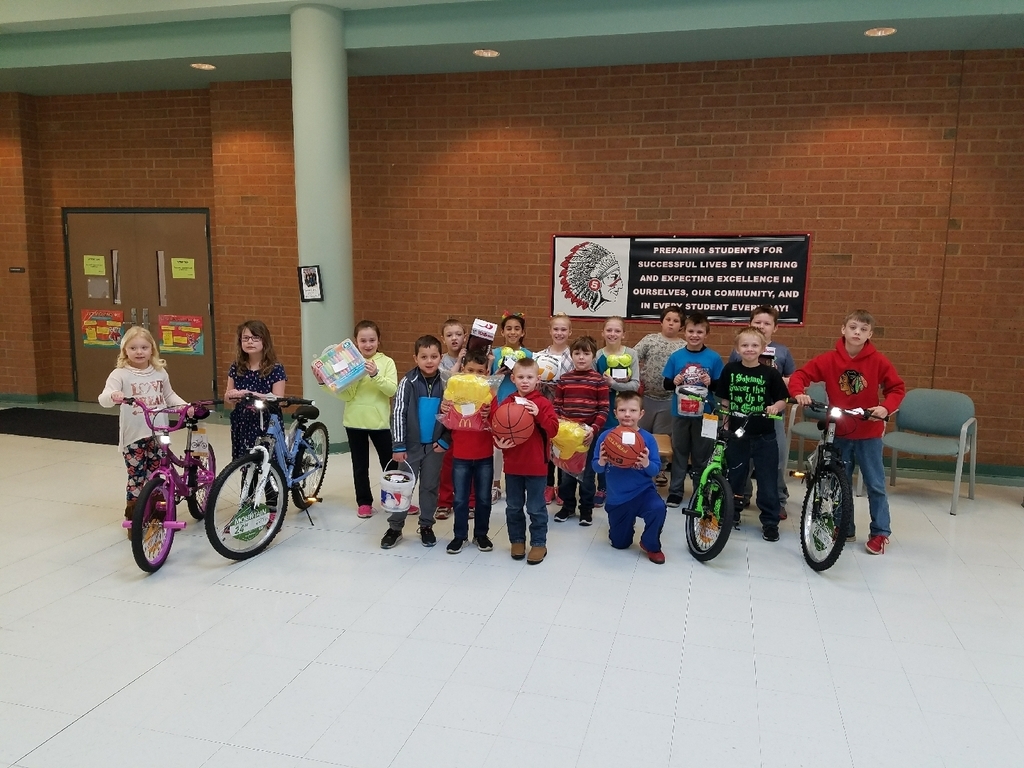If you have a student ready to go into kindergarten in the next school year, come to the elementary school on Tuesday, April 17 at 6 p.m. to enroll them and get important information regarding drop offs, pickups, lunches, and more. You will get to meet SES staff members and take a tour of the school, along with gaining valuable knowledge about your student's future school!

Here is an updated calendar for SES for the remainder of 2018.

Students who go above and beyond expectations at Sullivan Elementary School are awarded "Gold Slips." Three students were recognized for this honor in March. Cabella Williams (left) and Josh Bailey (middle) helped out their classroom teacher by getting pencils out of the back of a bookcase that the teacher could not get to. Emma McCain (right) stepped right in to help a student tie his shoe without even being asked.

Congratulations to our newest 3rd Grade members of the MIND Club (Math Is Not Difficult)!

Congratulations to our newest 1st Grade members of the MIND Club (Math Is Not Difficult)!

Congratulations to these students who won prizes from McDonald's! Students who attended McTeacher Night received a ticket and names were randomly drawn this morning. 4 new bicycles and numerous other prizes were handed out!

Mrs. Erica Lehman visited 4th grade to model a density lab with salt water and eggs. She then tested different materials to see which would safely land an egg from a six foot drop. Students love her Ag in the Classroom activities.

Mrs. Erica Lehman visited 4th grade to model a density lab with salt water and eggs. She then tested different materials to see which would safely land an egg from a six foot drop. Students love her Ag in the Classroom activities.
Mr.Landrus and Mr. Puyer burned
off one of our prairie plots making way for the SES vegetable garden. Mr.Grohler then came behind and tilled it. Our plot is ready for planting!!

Mr.Landrus and Mr. Puyer burned
off one of our prairie plots making way for the SES vegetable garden. Mr.Grohler then came behind and tilled it. Our plot is ready for planting!!
Come out to McTeacher night at McDonald's from 4-6 Wednesday, April 4! This event brings money to the Sullivan PTO and students get to put their names in for a bike raffle and will receive other prizes at the door!

Mrs. Becker’s class enjoyed hearing a story read by Bear! He read “Who stole the cookies?” We loved that the bear stole the cookies !

Coach Typer put together some great "Minute to Win It" games for students for their Good Behavior Celebration" on Friday!

Congratulations to the newest 1st Grade member of the MIND Club (Math Is Not Difficult)!

Mrs. Grohler’s students have enjoyed a variety of engaging activities throughout the month of March. A couple of the favorites seemed to be the Shamrock Word Hunt, making rainbows, and Easter Egg Word Hunt.

Congratulations to the newest 5th Grade member of the MIND Club (Math Is Not Difficult)!

Congratulations to the newest 5th Grade members of the MIND Club (Math Is Not Difficult)!

Congratulations to the newest 1st Grade member of the MIND Club (Math Is Not Difficult)!

Congratulations to the newest 1st Grade members of the MIND Club (Math Is Not Difficult)!

Mrs. Hendry's 4th graders measure the area and perimeter of our future Vegetable Garden. Look forward to more exciting news with our new Garden venture.

